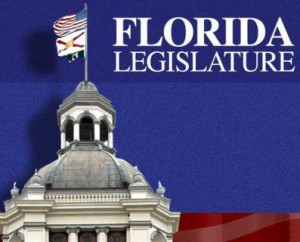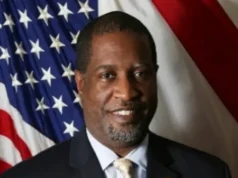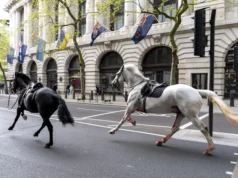

The Florida Legislature hit the halfway point of its 60-day session last week, and a person could make an argument either way. Yes, the House and the Senate have each approved bills that clearly define the path for Florida gambling in the coming years. But the problem is, their trains are running in opposite directions.
The Senate wants to allow eight counties that voted for slots in non-binding referendums to add them. The House wants to “erect a firewall against the expansion of gaming in the future,” according to Rep. Mike La Rosa, the St. Cloud Republican who chairs the Tourism & Gaming Control Subcommittee, adding there would be “no more loopholes.”
House Speaker Richard Corcoran calls a compromise this year “a heavy, heavy lift” and Sen. Bill Galvano says he “couldn’t guarantee we’ll ultimately have a final resolution.”
Meanwhile, there are a handful of court cases working their way through the system, most of which could torpedo any definition of “exclusivity” that the Seminole Tribe and the state of Florida spell out – and while working out a compact with the tribe is likely the most vital hurdle, it is one of several.

While the Seminoles are putting up the front that they have the upper hand – a court ruling earlier this year basically gave them tax-free table games until 2030 – they’re trying to build a hotel. And that court ruling is on appeal, so the winds could shift against them.
Racetrack casinos are sweating a possible drop in slot taxes and the possible addition of blackjack.
Pari-mutuels, most notably dog breeders and jai-alai players, also still need to hedge on whether to put a down payment on that home or just keep renting. That’s because decoupling – the idea that a racetrack casino doesn’t have to offer horse racing, dog racing or jai-alai to install slots – is on the table.
Most racetrack casinos like that idea, but Gulfstream Park in Hallandale Beach, in the midst of another stellar season of horse racing, is against the legislature’s allowance of decoupling, arguing that it would put nearby competitor Mardi Gras Casino at an advantage if the expense of dog racing went away.

We’ve been through this before, ever since the Seminoles negotiated a $1 billion compact for blackjack and exclusivity in Tampa back in 2010, and when Genting and Sands proposed destination casinos in 2011.
It’s the same four-way tug-of-war, between the Seminoles, the South Florida racetrack casinos, pari-mutuels up north who want some financial help and those who say they are morally opposed to gambling.
What will happen? Well, a favorite legislators’ saying still holds: It’s easier to kill a bill than to pass one.
But the one twist this year is the courts. The Seminoles, even if they “lose,” could decide to pocket the money they currently place in escrow each month as a sign of good faith this will all work out. Easy money that doesn’t find its way into the state budget make legislators look bad – and they know it.
So look for at least a temporary deal to keep that Seminole money flowing, while the courts still sort everything out. It may not be what make everyone happy, but it will be the move that prevents the most number of people from being unhappy.












